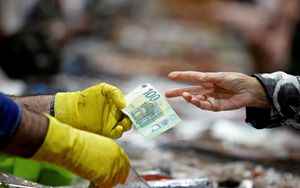(Finance) – Globally, the producers of consumer goods they have to cope with continuous increases of costs operational and of production, which are passed on to consumers. They are trying to secure supplies and cut costs, but supply chain challenges continue to hinder solutions to ensure operational efficiency. This is what we read in a report by Standand & Poors Despite the transfer of higher prices to retailers and final consumers, the latest reports of European producers of consumer goods subject to rating show that, so far, they have been able to successfully defend the respective market positions.
However, consumer confidence and spending are starting to weaken, due to the slowdown in economic growth, greater geopolitical uncertainty and the persistence ofinflationalso for the basic necessities such as fuel, energy and food.
THE volumes from sale of consumer goods are therefore set to decline in the coming quarters, as consumers – particularly low- and middle-income households – will gradually cut discretionary spending and pay more attention to prices to cope with falling real incomes. Domestic consumption will resist even in a recession context, as efforts are made to limit spending on meals outside the home.
In recent months S&P has adopted actions negative ratings on approximately 10% of rated companies active in the consumer goods sector in the EMEA area, due to high costs and interruptions on supply chain, which weakened its profitability. Most of these shares concern companies with a “BB” or “B” rating and active in subsectors more exposed to the rise in the prices of raw materials, such as packaged foods and personal hygiene products.
